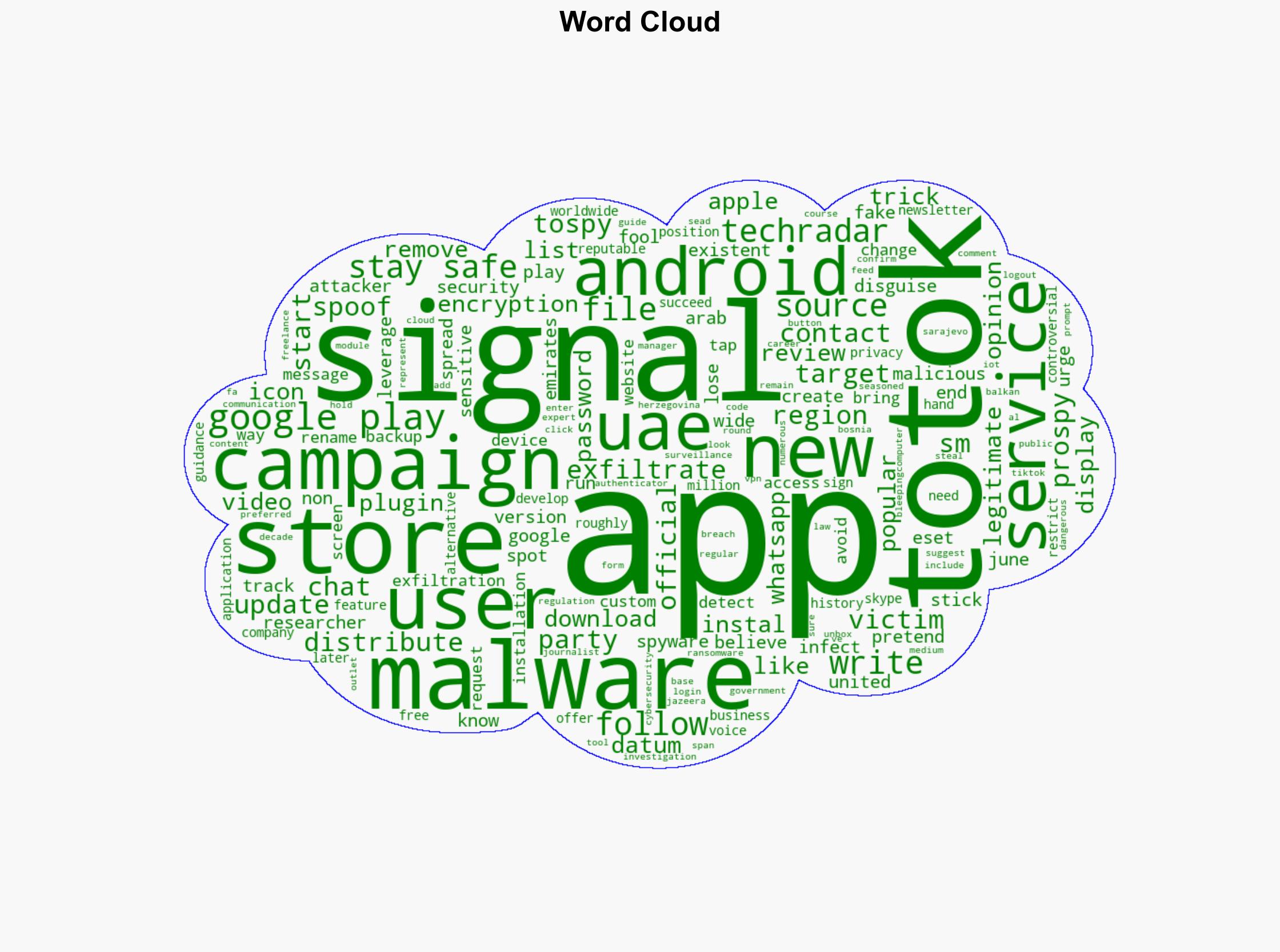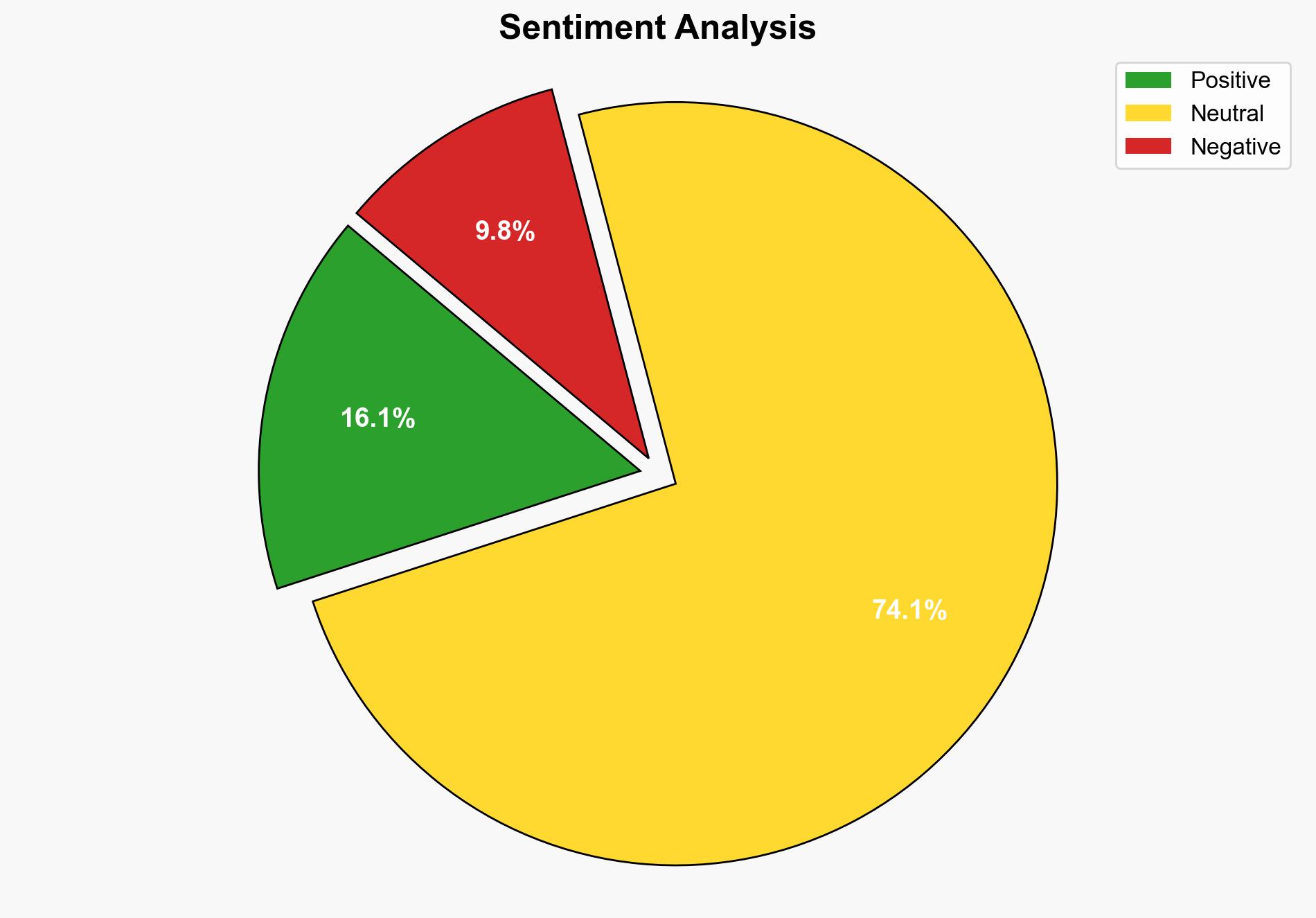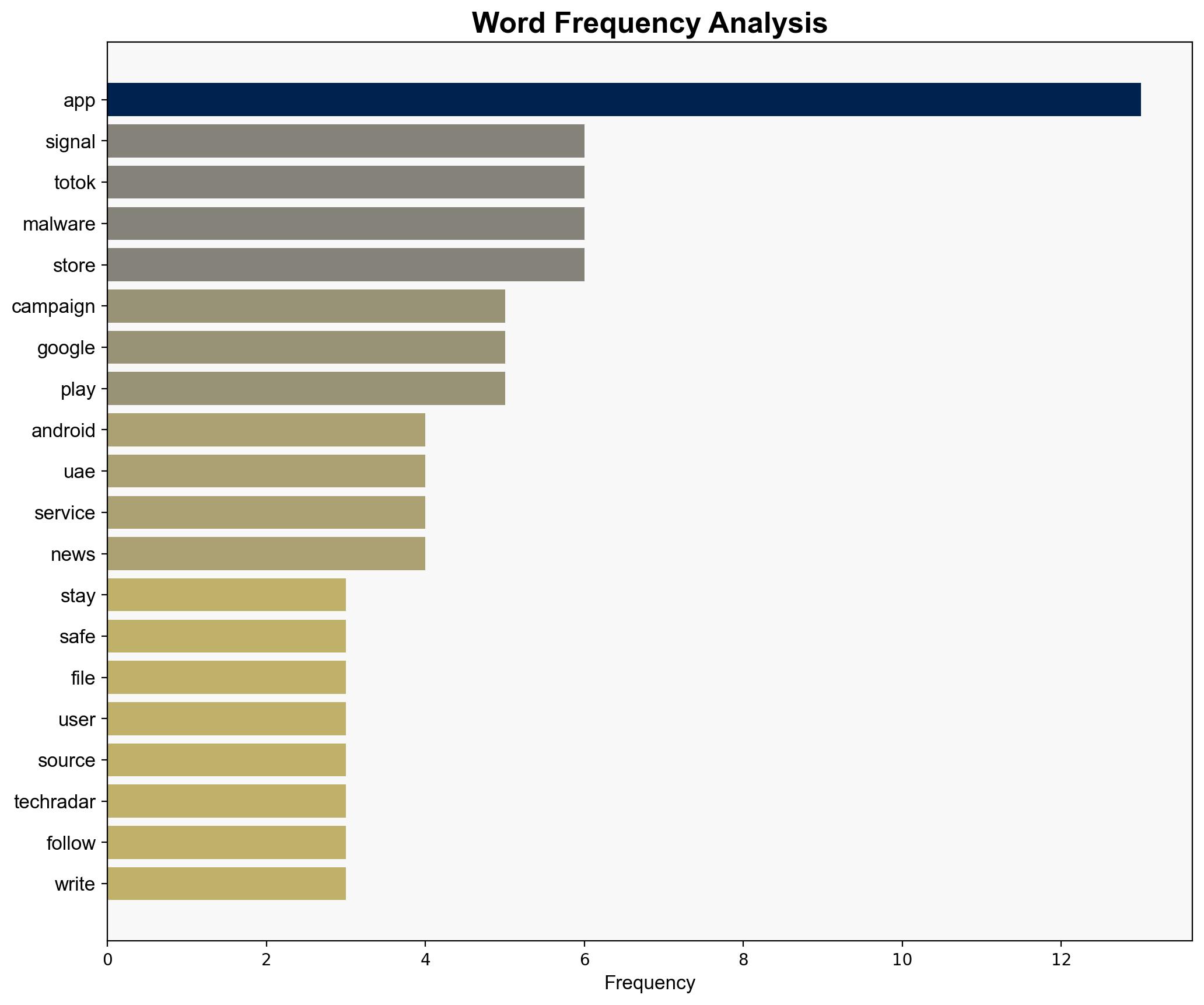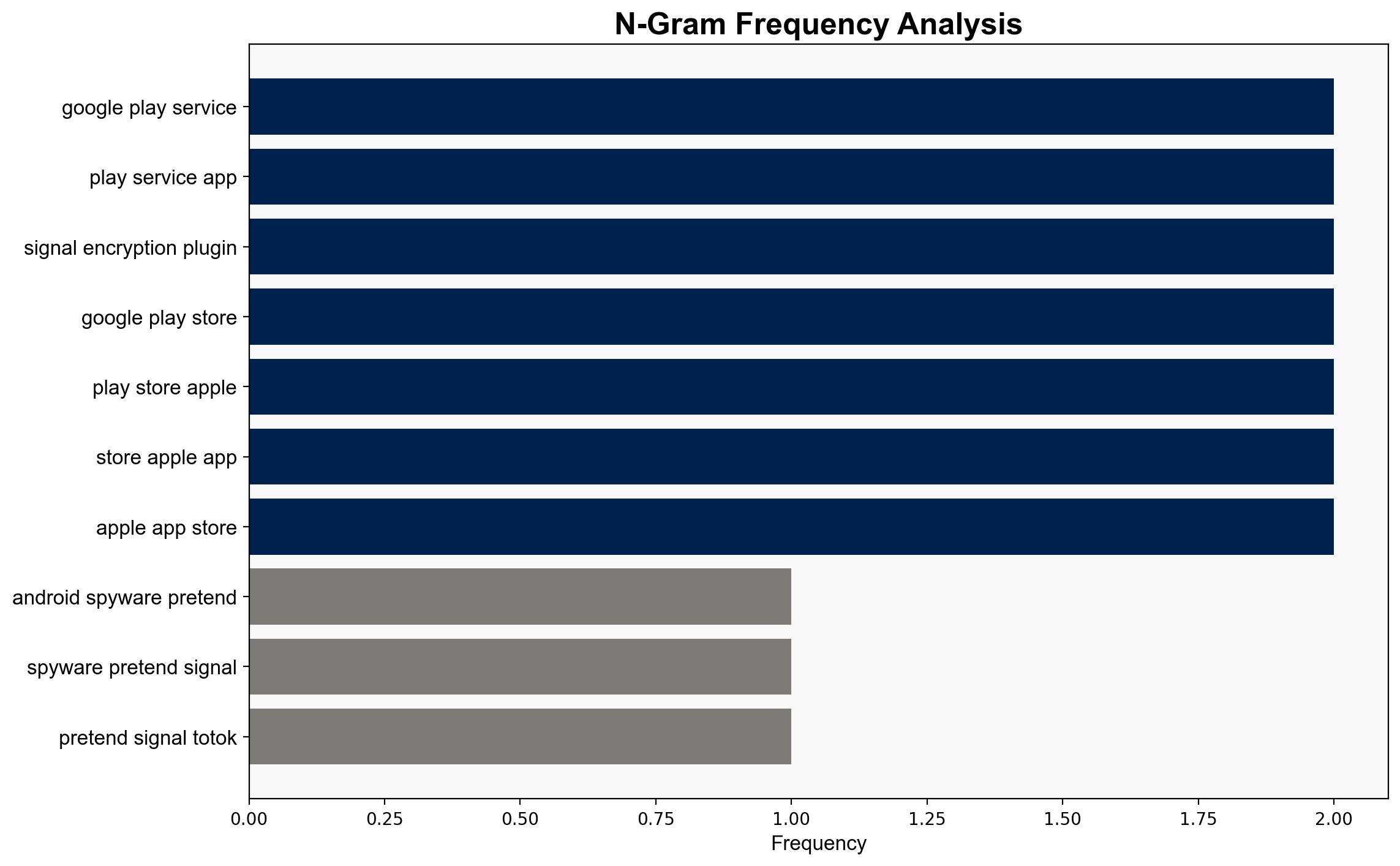Android spyware pretends to be Signal or ToTok update to fool victims – here’s how to stay safe – TechRadar
Published on: 2025-10-03
Intelligence Report: Android spyware pretends to be Signal or ToTok update to fool victims – here’s how to stay safe – TechRadar
1. BLUF (Bottom Line Up Front)
The most supported hypothesis is that the spyware campaign is a targeted operation by a state-affiliated actor, likely linked to the UAE, aiming to conduct surveillance on specific individuals within the region. Confidence level is moderate due to the circumstantial nature of the evidence. Recommended actions include enhancing public awareness about downloading apps from official sources and strengthening cybersecurity measures for potential targets.
2. Competing Hypotheses
1. **Hypothesis A**: The spyware campaign is a state-sponsored operation by the UAE government to monitor dissidents and foreign nationals within its borders, using the guise of popular apps like Signal and ToTok to gain access to sensitive information.
2. **Hypothesis B**: The campaign is orchestrated by independent cybercriminal groups seeking financial gain through the sale of exfiltrated data on the black market, exploiting the popularity of Signal and ToTok to maximize infection rates.
Using the Analysis of Competing Hypotheses (ACH) 2.0, Hypothesis A is better supported due to the historical context of ToTok being linked to surveillance activities and the regional focus on the UAE, which aligns with state interests rather than purely financial motives.
3. Key Assumptions and Red Flags
– **Assumptions**: It is assumed that the attackers have the technical capability to create sophisticated malware and that the UAE has a vested interest in surveillance.
– **Red Flags**: The lack of direct evidence linking the UAE government to the current campaign; reliance on historical associations with ToTok.
– **Blind Spots**: Potential involvement of other regional actors or proxy groups not considered in the analysis.
4. Implications and Strategic Risks
The campaign could escalate regional tensions, particularly if it is confirmed to be state-sponsored, leading to diplomatic fallout. Economically, widespread distrust in digital communications could impact tech companies and app developers. Cybersecurity risks include the potential for similar tactics to be adopted by other state or non-state actors, increasing the frequency and sophistication of such attacks globally.
5. Recommendations and Outlook
- Enhance public cybersecurity education, emphasizing the importance of downloading apps from official sources.
- Encourage regional cooperation in cybersecurity to mitigate state-sponsored threats.
- Scenario Projections:
- **Best Case**: Increased awareness leads to a decline in successful infections and improved regional cybersecurity collaboration.
- **Worst Case**: The campaign is part of a broader strategy that escalates into a regional cyber conflict.
- **Most Likely**: Continued low-level surveillance with periodic exposure of similar campaigns.
6. Key Individuals and Entities
– ESET (security researchers tracking the campaign)
– TechRadar (source of the initial report)
– Google and Apple (platforms for official app distribution)
7. Thematic Tags
national security threats, cybersecurity, counter-terrorism, regional focus




